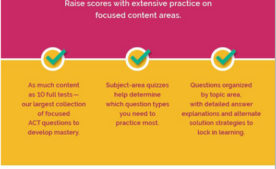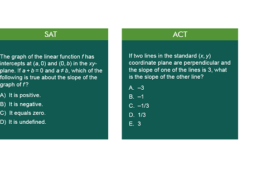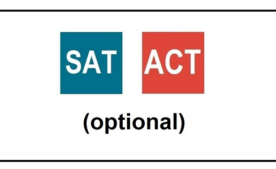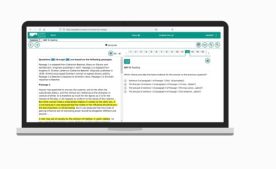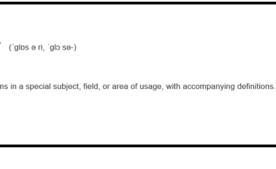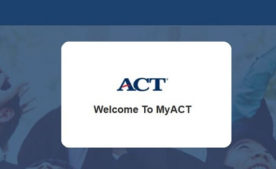In a clear, competitive shot across The College Board’s bow, ACT announced changes that could have a significant impact on the world of college admission testing.
The three ACT changes, scheduled to be implemented in September 2020, are:
1) Section retesting
2) Online testing on national test dates
3) Superscore reporting
Each of these is a significant change that could have ramifications for students’ testing choices, college admission decisions, and for those institutions that administer the ACT on national test dates.
What is Section Retesting?
Section retesting gives students who have already taken a full, official ACT the ability to retake one or more single-section tests (English, Math, Reading, Science, or Writing) on national ACT test dates. Section retesting will be available only online and, as a result, will be available only to those students who have access to test sites that offer online ACT administrations (more on that below).
What is Superscore Reporting?
Superscoring is when colleges choose to consider your highest section scores from multiple sittings of the same test (SAT or ACT) to create your highest combined or composite score. Almost all schools superscore the SAT, and roughly 60%-70% of schools superscore the ACT.
For students who have taken the test more than once, the ACT will now report a student’s superscore, giving colleges the option of using a student’s best scores from all test administrations rather than from just one sitting.
Ironically, until recently, the ACT had advised colleges against superscoring its own test. Following the findings of its own research studies, ACT conveniently reversed its stance, determining that a superscore is the most predictive scoring method.
How college admissions will respond to this change remains to be seen. It is one thing for ACT to promote superscoring. It is an entirely different thing for colleges to get on board.
How will online ACT testing work?
Starting with September 2020, schools that are ACT test sites will have the option to offer both paper testing and online testing. The digital ACT will have the same timing, content, and format as the paper tests, and ACT claims there is no advantage to taking the test in one form or another. The key benefit of digital testing is the ability to receive score results more quickly – two days to get scores for a digital test, versus two weeks or longer for physical tests.
The ACT announcement that online testing will be available in September comes as no surprise. Currently, online testing is available for ACT school-day testing, and for students taking the ACT outside the US, online testing is the only option.
The big surprise is that digital testing is happening on national test dates so soon.
How many ACT sites will have the resources, willingness, and technological infrastructure to offer digital testing? Our guess is not many. There have been multiple issues with ACT digital administration to date.
What do ACT changes mean for students and families?
It is unknown how colleges will respond to section retesting and whether or not ACT can overcome the logistical challenges of online testing. If available, section retesting provides a focused, less time-consuming option for students who want to improve their ACT scores in just one or two sections in the fall of senior year.
For the class of 2021 (current juniors), the 2020 spring and summer test dates remain full-length, paper tests, and even if online testing is implemented in September, paper testing will still be available and likely will be the predominant option.
For the class of 2022 (current sophomores), our recommendations will depend on whether the ACT has successfully implemented these changes and whether colleges have accepted the changes.
For now, we are still recommending the SAT or ACT path equally for our students, based on the results of their diagnostic practice tests and personal preference.
We continue to caution students and families against over-testing. The idea of testing “early and often” can lead to burnout and negatively affect student success in school and other activities. Regardless of what happens in the industry, we will continue to stress that an effective test prep plan is sensible and based on the student’s needs. A good plan is one that prioritizes academic performance over testing and test preparation.
Unanswered questions and some speculation.
About 60-70% of colleges currently superscore the ACT. For those schools that don’t, will they now feel compelled to change their policy? Charlie Deacon at Georgetown has already come out saying that, in all likelihood, Georgetown would not change its policies.
How many test sites (typically high schools) are equipped and willing to take on the additional burden of administering online testing? Administering just the paper version of these tests is headache enough. We anticipate a large demand for section retesting, but relatively few test sites.
Does taking a single section offer a score advantage over taking a full-length test? Intuitively, the answer seems a clear “yes.” Most concerning is that ACT has admitted that they have yet to conduct comparability studies for section retesting.
Do online testing and section retesting increase the disparity in scores between upper and lower-income students? Probably. Typically, students from lower-income families test once. Section retesting and online testing, which will likely be available in wealthier school districts that can handle the logistics and technology, encourage repeat testing. Students in these areas will chase higher and higher superscores by testing multiple times.
How will non-standard accommodations (accommodations other than time and a half) be handled for online section retesting? ACT has already admitted that they won’t, for example, have this option for multi-day testers.
Assuming a successful implementation, how will this affect students’ testing and test preparation patterns? It’s not hard to imagine students testing 5, 6, 7 times (certainly not our recommendation!) as they try to maximize their scores.
Will this drive students to the ACT over the SAT? Certainly, that is ACT’s hope. It will be interesting to see how the College Board responds. Will they try to poke holes in the ACT’s research and lack of planning, or will they take a similar step?
Long-term, will colleges tire of the changes bred by the competition between ACT and The College Board? Do the constant changes wither the credibility of the tests as these testing giants seem more focused on one-upping each other than they do on helping the students and colleges they serve? Expect to see even more colleges go test-optional.
Summit will keep you updated.
During our 31 years in the world of college admissions testing, we’ve seen a lot of changes and innovations in the industry, and we’re ready and eager for what’s ahead. We will continue to keep you updated. We do our best to make the admission testing process as straightforward and effective as possible for each student and family. Please do not hesitate to call or email us with questions, thoughts, or comments.






